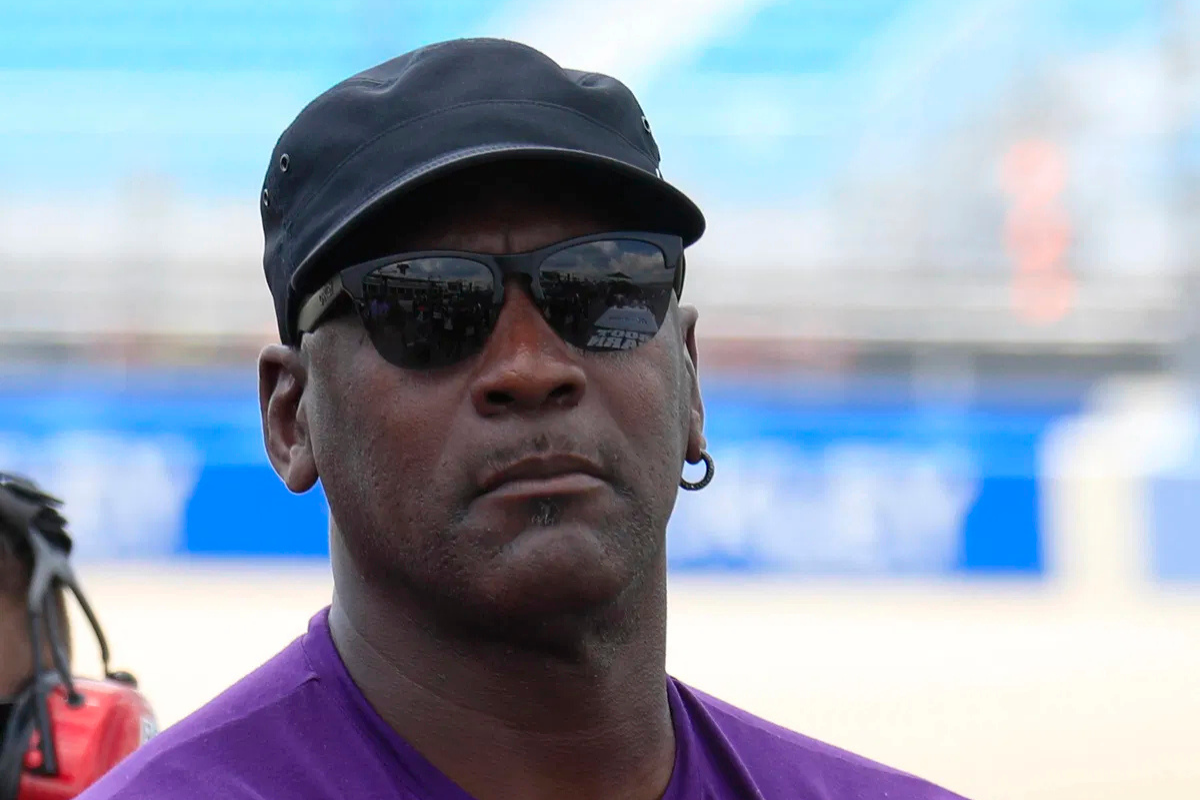
Imago
NASHVILLE, TN – JUNE 25: Michael Jordan, co-owner of 23xi racing and NBA, Basketball Herren, USA legend watching the action on pit road during qualfying for the 2nd annual Ally 400 on June 25, 2022 at Nashville SuperSpeedway in Nashville, TN. Photo by Jeff Robinson/Icon Sportswire AUTO: JUN 25 NASCAR, Motorsport, USA Cup Series – Ally 400 Icon220625928400

Imago
NASHVILLE, TN – JUNE 25: Michael Jordan, co-owner of 23xi racing and NBA, Basketball Herren, USA legend watching the action on pit road during qualfying for the 2nd annual Ally 400 on June 25, 2022 at Nashville SuperSpeedway in Nashville, TN. Photo by Jeff Robinson/Icon Sportswire AUTO: JUN 25 NASCAR, Motorsport, USA Cup Series – Ally 400 Icon220625928400
After winning the 1991 and 1992 titles with Michael Jordan in Chicago, he was waived in October 1992. In 2005, he joined the Lakers’ coaching staff and helped secure championships in 2009 and 2010. MJ’s former teammate’s time in the league may have been brief, but it was undeniably legendary. He is not only known for his feats in the NBA but also for his contributions to society, his active participation in political matters. And most notably, his lawsuit against the NBA. After more than two decades, he shared more details about it in a recent episode of the All The Smoke podcast.
Watch What’s Trending Now!
Over a decade later, in November 1996, Craig Hodges filed a $40 million federal lawsuit against the NBA and its then‑29 teams, alleging he had been “blackballed” for his outspoken political activism and for delivering a handwritten letter to President George H.W. Bush during the Bulls’ 1991 White House visit
“I called the league to ask him, yo man, what’s going on, and Horus (Balmer, then head security) calls me back, and I’m like yo what you calling me for? Well, I’m trying to find out what’s going on.” Hodges said.
ADVERTISEMENT
He further added, “I’m like I just want to find out why I’m being stonewalled, and he’s like, ‘well it ain’t nothing like that.’ Well, I said I need to get me an attorney, and he was like, ‘Well, you don’t need to do that.’ And then the phone clicked, and I was like, okay. So at that point in time I decided to get an attorney,” He felt blackballed, though a federal judge ultimately dismissed his $40 million suit on statute‑of‑limitations grounds.
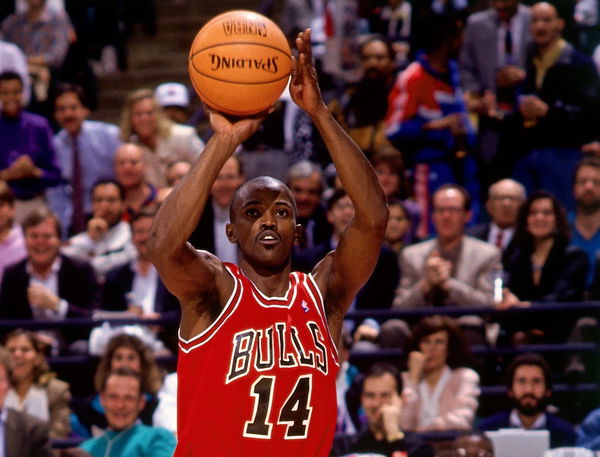
Getty
CHARLOTTE – FEBRUARY 9: Craig Hodges #14 of the Chicago Bulls shoots during the 1991 NBA Three Point Competition on February 9, 1991 at the Charlotte Coliseum in Charlotte, North Carolina. NOTE TO USER: User expressly acknowledges that, by downloading and or using this photograph, User is consenting to the terms and conditions of the Getty Images License agreement. Mandatory Copyright Notice: Copyright 1991 NBAE (Photo by Andrew D. Bernstein/NBAE via Getty Images)
Long before the lawsuit, Hodges made headlines by wearing a white dashiki and Muslim kufi to the White House on October 7, 1991. He presented Bush’s press secretary an eight‑page letter urging action on poverty and racial inequality. An act, he said, paid tribute to his ancestors and fueled his “ancestral help” throughout that playoff run. That White House protest followed his effort, prior to Game 1 of the 1991 Finals, to organize a boycott with Jordan and Magic Johnson over the Rodney King beating. Both superstars declined, and the boycott never materialized
ADVERTISEMENT
Today, Hodges is celebrated not only for his sharpshooting (40.0% career 3‑PT) and three‑peat contest victories but also for paving the way for modern player‑activists.
ADVERTISEMENT
Craig Hodges recalls playing alongside Michael Jordan
Craig Hodges’s relationship with Michael Jordan began not in Chicago but in Milwaukee, where Hodges first spotted Jordan’s superstar potential. Hodges joined the Bucks in the 1983–84 season, two years before Jordan’s 1984 draft, after a stint with the San Diego Clippers. And in that time, the sharpshooter got his first glimpse of “Air” up close in playoff matchups against the Bulls
“When I was in Milwaukee, I recall we [Michael Jordan] were in the playoffs. And this probably two or three years before we became teammates. We were going through layup lines, and we happened to meet at the half-court. I’m telling him, ‘Yo brother when we get together we are going to win championships’ and we go back to our layup lines,” Hodges said in a conversation with the DJ Vlad.
Top Stories
Brittney Griner Claps Back at ‘Dirty Player’ Claims After Controversial Aliyah Boston Incident
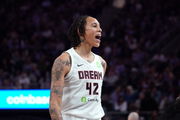
Lakers Legend Slams LeBron James for Disrespecting Michael Jordan’s Era
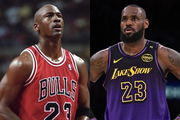
Alyssa Thomas Under Fire After WNBA Fans Call Out Controversial Play vs Paige Bueckers
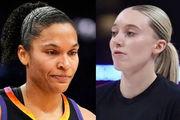
Giannis Antetokounmpo Snubs Stephen Curry Team-Up Despite Warriors’ Trade Plan – Reports
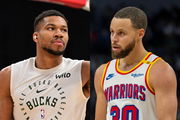
Is Stephen Curry Playing Tonight vs Jazz? Latest Injury Report on Warriors Star (Jan 28)
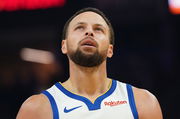
By 1988, Hodges had signed with the Bulls, transforming from adversary to ally. As Chicago Bulls‘ resident marksman—leading the league with a 46.9% three‑point clip in 1987–88—he provided the spacing Jordan needed, contributing key long‑range buckets en route to back‑to‑back titles in 1991 and 1992
ADVERTISEMENT
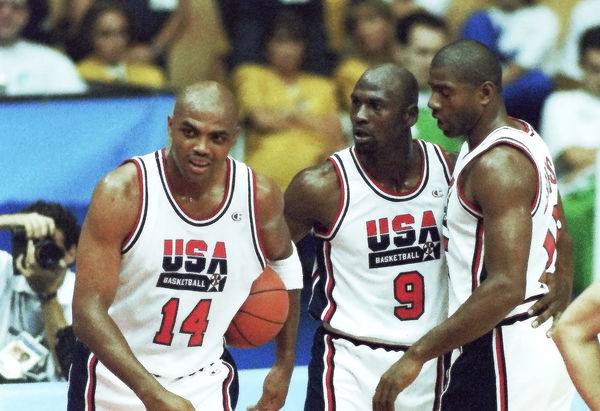
Imago
USA defeated Croatia 117-85 in the gold medal game of the Barcelona Summer Olympics August 8, 1992. This was the original Dream Team, and was the first American Olympic team to feature active professional players from the NBA. The starting five consisted of Patrick Ewing, Larry Bird, Michael Jordan, Magic Johnson and Scottie Pippen. The team has been described as one of the greatest sports team ever assembled.
Yet Hodges’s bond with Jordan extended beyond X’s and O’s. In the wake of the Rodney King beating, Hodges approached Jordan and Magic Johnson before Game 1 of the 1991 Finals. He urged them to boycott in protest against police brutality. A request, both icons politely declined. “They felt it was extreme,” Hodges told Slam Online, “but I saw precedent in past NBA player protests and believed it was our duty to act.”
Despite that fallout, Jordan and Hodges maintained mutual respect. In a 1992 conversation documented in The Jordan Rules, Jordan acknowledged Hodges’s courage: “He stood for something,” Jordan said, “even when it cost him on the court.”
ADVERTISEMENT
Today, Hodges looks back with pride at that Bulls era. He views his partnership with Jordan as both a competitive alliance and a foundation for modern player‑activism. “We were brothers on the floor,” he reflected, “and even when we disagreed, we never lost respect.“
ADVERTISEMENT
ADVERTISEMENT
ADVERTISEMENT